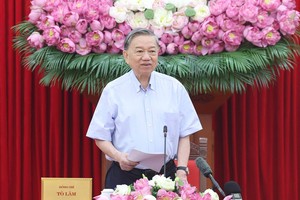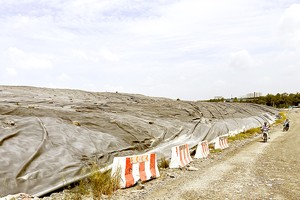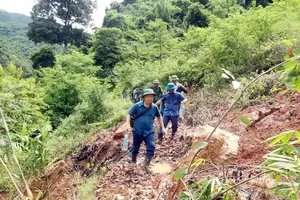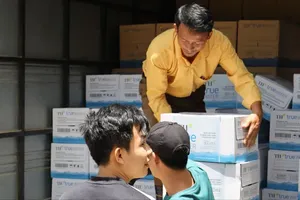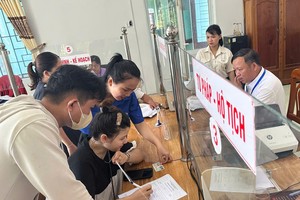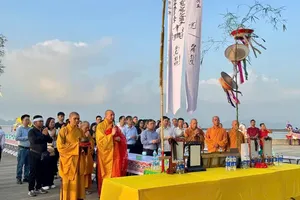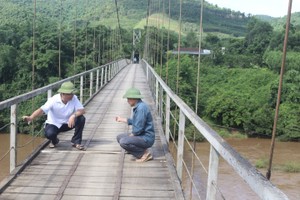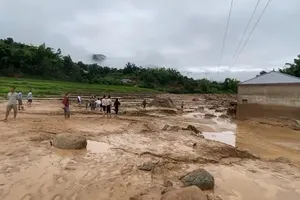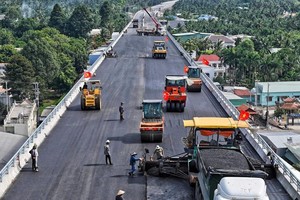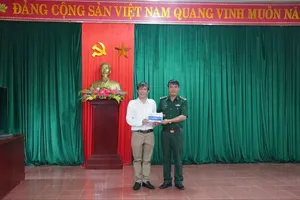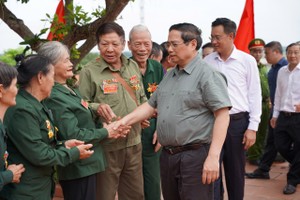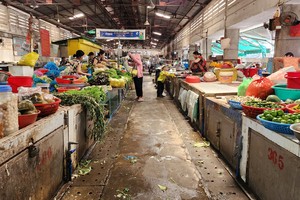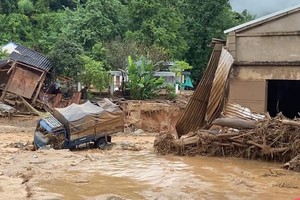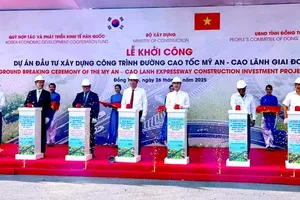A balance of the fisheries and hydropower sectors in the Lower Mekong Basin – Cambodia, Laos, Thailand and Vietnam – will continue to be a key part of the 2011-2015 phase of the Mekong River Commission Fisheries Program, the program announced Friday in Can Tho.
The MRC Fisheries Program held its annual meeting in the Vietnamese Mekong city on Nov. 25-26 and made its statement.
The program’s phase 2 will end in 2010 and the next phase, in the next five years, will build upon the achievements of 16 years of cooperation between the MRC and national fisheries agencies in research and development of fisheries of the basin, the program said.
“It [the program] will particularly seek to achieve a more balanced approach to management of the fisheries and a better integration with other agencies and sectors to deal with the many challenges that today face the fisheries of the basin,” the statement wrote.
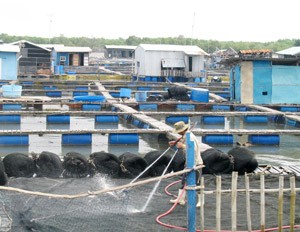
In its conclusions, the two-day meeting, attended by representatives from the four Mekong countries, said that fisheries play a key role in particular in supporting the poorer people – their food and livelihoods.
Vietnamese Deputy Minister of Agriculture and Rural Development, Mr. Luong Le Phuong, said at the meeting, “The life of 18 million people in the Mekong Delta [of Vietnam] is strongly related to the annual flood cycle of the Mekong River.
“Therefore, the Vietnamese Government has set up a ‘live with floods’ strategy do socio-economic development of the Mekong Delta. The fisheries resources from wetlands and flooded areas there are the main animal protein sources supplied to the local people and also create extra incomes for farmers during the flood period as most of the agricultural activities are hampered.”
Mr. Phuong added, “The fisheries resources in the Mekong Delta as well as Mekong River are seriously affected by other impacts from water resources utilization of the riparian countries such as dams and reservoirs, which bring about lot of changes of the water flows, flooded areas and the flood cycle.
“Due to the important role and great socio-economic value of fresh water fisheries resources in the Mekong Delta as well as in the Mekong Basin, sustaining the fisheries resources and protecting their biodiversity are main tasks for fisheries institutions.
“It is also required not only the collaboration among institutional levels within the country, but also in the Mekong regions, as well as the international level,” said the Vietnamese vice minister.
During the meeting, the Malaysia-based World Fish Center presented planned work on the aquatic agricultural systems in the Lower Mekong Basin for improved nutrition and health, and on proposed research to understand and promote the production of nutrient-rich fisheries species in a predominantly agricultural landscape.
Consequently, one of the meeting’s conclusions writes, “Inland capture fisheries are part of the landscape, which is primarily agricultural, so consideration of fisheries within agriculture should be a key part of our thinking and an important factor shaping our future activities.”
The Mekong River Commission (MRC) is the intergovernmental body responsible for cooperation on the sustainable management of the Mekong Basin whose members are Cambodia, Laos, Thailand and Vietnam.
